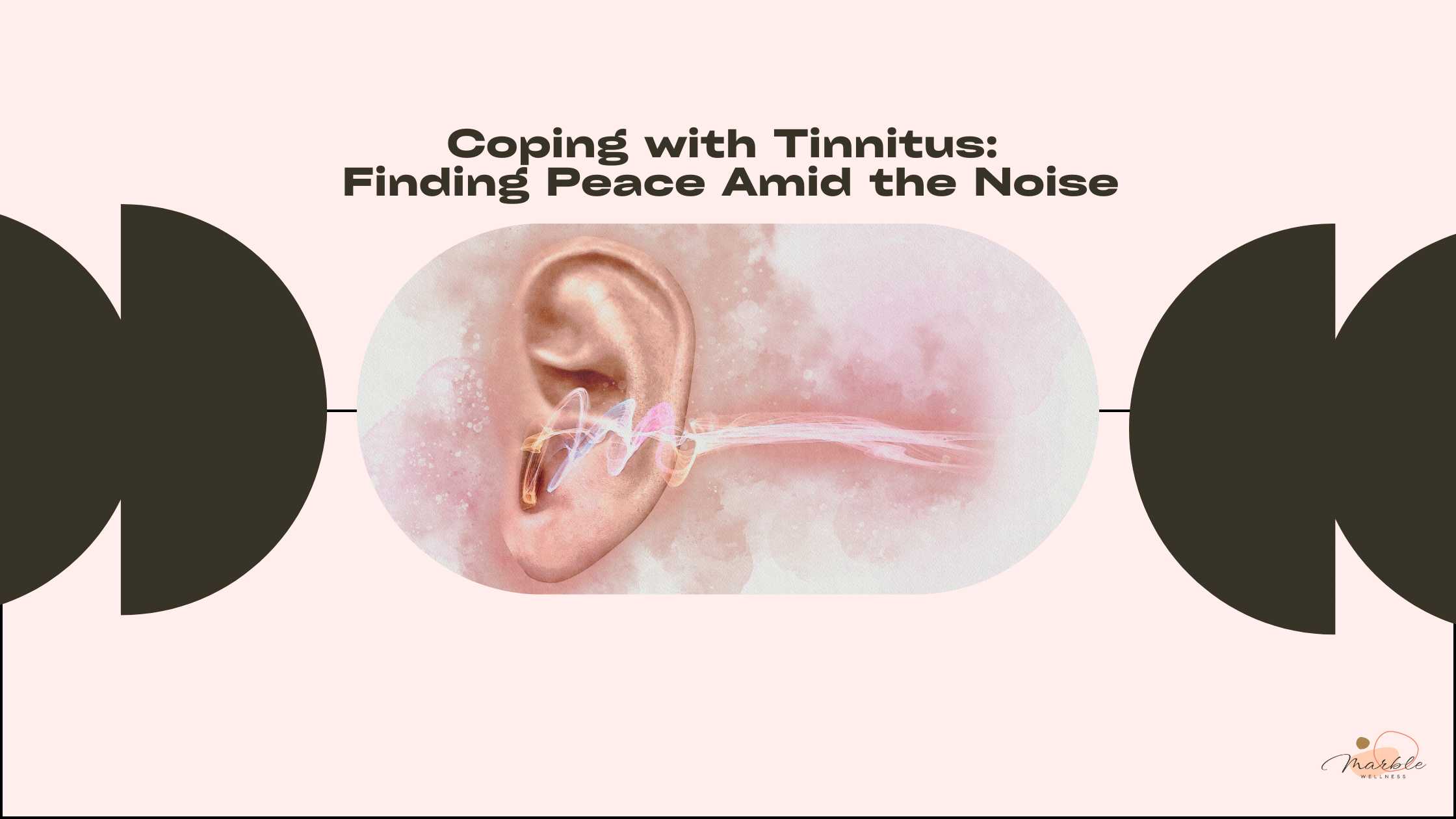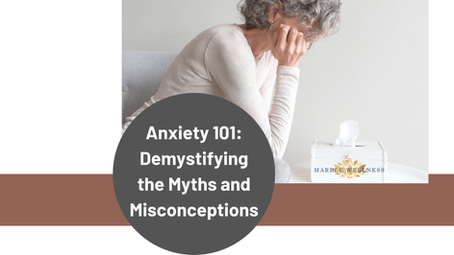Tinnitus can feel like an uninvited guest who refuses to leave, disrupting your peace and making everyday life a challenge. Millions of people experience this condition, which can lead to heightened anxiety, frustration, and even feelings of isolation. In this blog post, we will explore the intricate relationship between tinnitus and mental health, shedding light on how this persistent noise can affect emotional well-being. We’ll also discuss practical therapeutic tools that can help individuals manage the impact of tinnitus, allowing those affected to reclaim a sense of calm and connection in a world that often feels overwhelming. Whether you’re seeking understanding for yourself, a patient, or support for a loved one, this guide aims to provide compassionate insights and actionable strategies to navigate the complexities of living with tinnitus.
What is Tinnitus?
Imagine being in a quiet room, ready to relax, but instead of silence, you’re met with a high-pitched ringing, buzzing, or even a clicking noise that won’t go away. That’s tinnitus—a condition affecting millions worldwide where people experience persistent sounds that aren’t actually present in the environment. For some, it’s a subtle hum; for others, it’s a loud, piercing noise that can be incredibly distracting.
Tinnitus isn’t a disease itself but rather a symptom of an underlying issue, often related to hearing loss or exposure to loud noises. Sometimes it’s connected to age-related hearing loss, while other times, it may be triggered by exposure to loud environments or certain medications. Many people with tinnitus also experience high levels of stress or anxiety, which can worsen symptoms and make it impossible to find relief.
Why Does Tinnitus Impact Mental Health?
When tinnitus becomes constant or particularly loud, it can affect mental health. Imagine hearing that noise all the time; over time, it can start to feel overwhelming and, unfortunately, unfixable. As many audiologists point out, persistent noise can disrupt sleep, increase irritability, and lead to feelings of frustration and isolation. Hearing aids may alleviate the intensity for some, but they’re not a cure-all. Many people with tinnitus experience heightened levels of anxiety and even depression as they struggle to cope with this chronic condition.
How Tinnitus Impacts Mental Health: The Anxiety, Depression, and Isolation Connection
As persistent tinnitus wears on, it’s common for people to experience increasing levels of anxiety. Imagine feeling constantly on edge, bracing yourself against a noise you can’t escape. This is one-way anxiety takes hold, as individuals anticipate the sound returning (or worsening) at any moment. For many, it becomes hard to relax, and simple activities—like reading, meditating, or even having a conversation—can feel tense and overwhelming. The noise acts like an intruder, always interrupting and keeping them from feeling fully present or at ease. This constant state of alertness can heighten anxiety and even trigger panic attacks, especially in quiet or otherwise peaceful situations where the tinnitus becomes most noticeable.
Depression can also develop when tinnitus persists. The constant noise can make people feel powerless over their own experiences, and it’s exhausting trying to “tune out” something so persistent. Many people feel hopeless about the prospect of finding relief and may withdraw from daily routines or social interactions. It’s not uncommon to see a cycle where the frustration with tinnitus fuels sadness, which can deepen into depression. Tinnitus often interrupts sleep, which is another contributor to depressive feelings; sleep deprivation increases mood swings, reduces stress tolerance, and can make managing day-to-day activities feel like an uphill battle.
Isolation from Tinnitus: Feeling Misunderstood and Alone
One of the most challenging aspects of tinnitus is how isolating it can feel. Since tinnitus isn’t something others can see or hear, it’s easy for loved ones and friends to underestimate its impact. People with tinnitus might be told to “just ignore it,” which can feel invalidating and isolating. This reaction often leaves those with tinnitus reluctant to talk about their struggles, creating a barrier between them and others who might otherwise offer support.
This isolation is even more intense for young people. Tinnitus isn’t as common in younger populations, so they may feel misunderstood by peers who simply don’t “get” what it’s like to hear a constant ringing. While peers are often engaged in social events or excited about quiet study sessions, someone with tinnitus may feel like an outsider, unable to escape their own noise. Young people may feel as though this condition is robbing them of their energy and normalcy, adding an extra layer of frustration. Instead of feeling connected and understood, they may feel singled out by an invisible condition, which can lead to social withdrawal and increase the risk of depression.
Therapeutic Tools for Managing Tinnitus
Dealing with tinnitus is complex, especially when it brings up feelings of anxiety, frustration, or isolation. While there’s no cure for tinnitus, there are effective mental health strategies that can help reduce the emotional impact. Here are some tools commonly used to support people in managing their reactions to tinnitus:
- Mindfulness Practices: Mindfulness helps individuals focus on the present moment rather than becoming consumed by the sound of tinnitus. By practicing mindfulness techniques, like deep breathing, guided imagery, and body scans, people with tinnitus can gradually shift their attention away from the ringing or buzzing and reduce its emotional toll. Consistent mindfulness practices have been shown to help people develop a calmer approach, lessening tinnitus’s grip over time.
- Cognitive Behavioral Therapy (CBT): CBT can be a powerful approach to managing tinnitus, as it focuses on identifying and changing unhelpful thought patterns. Tinnitus often triggers negative thinking cycles like “This sound will never go away” or “I’ll never be able to enjoy silence again.” CBT helps individuals recognize these patterns and reframe them into more constructive thoughts, reducing the distress associated with tinnitus. Additionally, CBT can teach coping mechanisms for anxiety, which is often intertwined with tinnitus, helping people develop a healthier mental response to the condition.
- Acceptance-Based Approaches: Acceptance and Commitment Therapy (ACT) offers another path for tinnitus sufferers by encouraging them to accept the condition rather than struggle against it. ACT focuses on teaching people to live with tinnitus in a way that reduces its control over their lives. Instead of wishing the tinnitus away, ACT helps people acknowledge it as part of their experience, ultimately lessening the power it has over their thoughts and emotions.
- Sound Therapy and Relaxation Techniques: Many people find relief through sound therapy, such as listening to calming white noise, rain sounds, or other soothing audio to mask tinnitus. Combined with relaxation exercises, like progressive muscle relaxation or guided meditations, sound therapy can improve mood and reduce the tension caused by constant noise.
- Lifestyle Modifications and Self-Care: Simple lifestyle changes, such as regular exercise, good sleep hygiene, and reducing caffeine or alcohol intake, can also positively impact tinnitus and overall mental health. Building a self-care routine that prioritizes stress management and relaxation gives people a foundation for resilience, reducing the emotional highs and lows associated with tinnitus.
Why Therapy Makes Sense for Those with Tinnitus
Therapy is a natural fit for people struggling with tinnitus, especially when its mental health impact is significant. Since tinnitus can lead to anxiety, depression, and social withdrawal, having a therapist provides a safe space to explore these challenges, understand the underlying emotions, and develop tailored coping strategies. With a skilled therapist, individuals can work through the frustration of dealing with tinnitus and find ways to reclaim their quality of life.
Therapists are also there to support people in reframing how they view tinnitus. Often, it’s not just the noise but the mental response to it that causes the most distress. Therapy helps individuals understand these reactions, while also teaching strategies to reduce the noise’s grip on their life. A therapist can collaborate with an audiologist to provide a holistic treatment plan, offering both practical and emotional support.
For young people especially, therapy can be a lifeline. It offers a place to discuss feelings of isolation and frustration, as well as the added stress of having a condition that sets them apart from their peers. By addressing these specific challenges, therapy helps people of all ages feel less alone in their tinnitus journey, empowering them with tools to face each day with confidence and resilience.
Setting Realistic Expectations for Therapy: Finding Peace Without a Cure
One of the most empowering parts of therapy is learning that, even though tinnitus might not go away, it doesn’t have to control every aspect of life. Therapy for tinnitus focuses on helping people live with the condition in a way that feels manageable, meaningful, and less disruptive. It’s not about silencing the noise but rather changing how it’s perceived and responded to.
In therapy, clients work on developing a new mindset toward tinnitus. Instead of viewing it as an unbeatable obstacle, therapy guides them toward accepting it as something they can live with. This shift often begins with exploring realistic, achievable goals—like learning techniques to reduce stress, improving sleep quality, or feeling more comfortable in social settings. Through this process, people come to see that they can have an active, fulfilling life, even with tinnitus.
This journey takes time, but progress in therapy often shows up as small yet powerful changes: a lessening of frustration, improved patience, or the ability to enjoy moments of quiet (even if the noise is still present). The tools learned in therapy are meant to help people live fully despite tinnitus, giving them a way to focus on what they can control, even if they can’t control the sound itself.
Working with a Team: Audiologists and Therapists Together
Combining the expertise of audiologists with mental health therapists provides the most comprehensive support for people dealing with tinnitus. Audiologists can assess and suggest practical tools, like hearing aids or sound therapy, to minimize the auditory impact. Therapists can then help patients manage their emotional responses, creating a full-circle approach that addresses both the physical and mental effects of tinnitus.
At the end of the day, therapy can give people the confidence and skills to navigate tinnitus in a way that feels more peaceful and less overwhelming. This journey is about gaining back control—over mood, daily life, and mental well-being—so that tinnitus no longer feels like it’s running the show.
Start Therapy for Chronic Pain in St. Louis, MO
If you live in St. Louis and are ready to improve your mental health, we are here to help. In fact, we can help you wherever you are in the state with online therapy in Missouri. Our expert therapists can help you or your patients navigate the pain, frustration, and isolation of tinnitus. Don’t hesitate any longer, reach out!
Contact Us!

Additional Counseling Services at Marble Wellness in St. Louis, MO
Our counseling services are designed to help set you on a path of living a more fulfilled, calm, and happy life. Our incredible team of STL-based therapists has a variety of training backgrounds and areas of expertise. We specialize in anxiety, depression, grief, chronic illness, therapy for men, couples, and maternal overwhelm. Our practice also helps new moms with various postpartum concerns, moms in the thick of parenting, and moms with teens. We can also chat from wherever you are in the state with online therapy in Missouri. No matter where you are in your mental health journey, we would love to support you.



